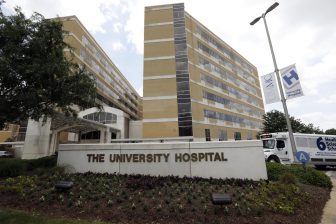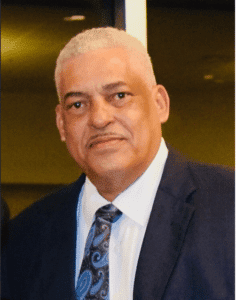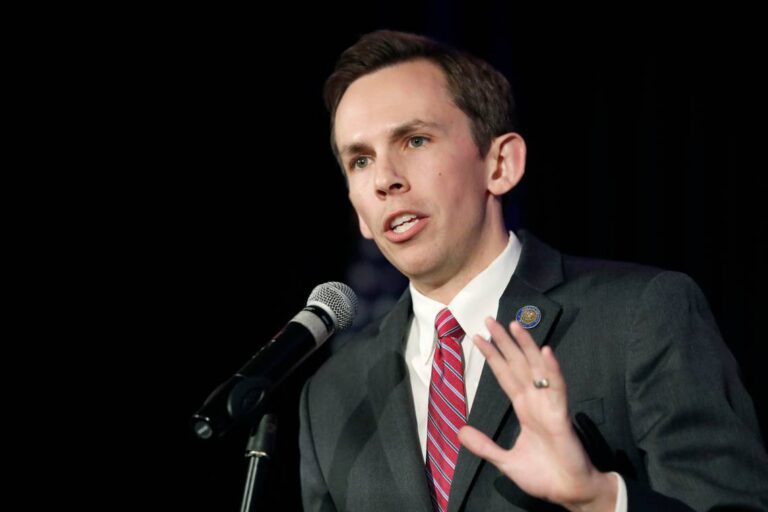
Gov. Tate Reeves announced Thursday he had partially vetoed an appropriations bill for the University of Mississippi Medical Center, citing the state-owned hospital’s ongoing contract dispute with Blue Cross & Blue Shield of Mississippi.
Reeves’ partial veto of Senate Bill 3010 withholds $50 million of federal American Rescue Plan Act funding appropriated to UMMC by the state legislature for the completion of capital improvements to the patient care facilities and operating suites of UMMC’s adult hospital.
The governor justified the veto by arguing that while UMMC’s teaching center is largely funded by the state, the hospital is not. He accused the hospital of “willingly” turning away patients on private insurance, a reference to UMMC’s contract dispute with Blue Cross that has resulted in the hospital going out of network with the insurer.
Though Blue Cross insurance is not currently accepted at UMMC, the hospital is not turning away patients covered by that insurer. Instead, those patients must pay for their care out of pocket, but at a discounted rate.
“There is little reason that Mississippi taxpayers should radically increase the commitment to further subsidize the operations of UMMC to the detriment of competitors,” Reeves said in a statement.
READ MORE: Blue Cross, UMMC agree to mediation to settle contract dispute
UMMC officials declined to comment on what this loss of funding would mean for the planned improvements to the hospital. The hospital is receiving other ARPA funding for improvements to teaching facilities, including $55 million for its School of Nursing building.
While the governor vetoed the appropriation for UMMC, which is tasked with treating many of the state’s uninsured, he did approve a $7 million appropriation for Gulfport Memorial Hospital.
The legislation, signed into law earlier this week by Reeves, provides $7 million to Gulfport Memorial for the pediatric multispecialty center on or near the hospital’s campus “in collaboration with University of Mississippi Medical Center and Gulf Coast Community College.”
UMMC is a public hospital owned by the state. Gulfport Memorial is a public not-for-profit hospital owned jointly by the city of Gulfport and Harrison County.
Reeves has publicly clashed with Dr. LouAnn Woodward, vice chancellor of health affairs and medical school dean at UMMC, over his handling of the COVID-19 pandemic. Meanwhile, Kent Nicaud, the chief executive officer of Memorial Hospital of Gulfport, hosted a fundraiser at his home for the governor in the midst of a surge in the pandemic. At the time of the event, health care experts were urging caution during social gatherings as most hospitals in the state were filled to capacity.
Nicaud served on Reeves’ state finance committee for his 2019 gubernatorial campaign and has donated tens of thousands of dollars to the governor. Nicaud’s son has also been a significant campaign donor to Reeves.
The state constitution gives the governor partial veto authority, but that authority had been significantly limited by the courts in past rulings. In rulings going back to the 1800s, state courts had significantly limited the governor’s authority to veto portions of appropriations or spending bills until a 2020 Supreme Court decision.
The state Supreme Court had previously ruled that governors could not veto “the purposes or conditions” of appropriations bills. Instead, the governor had to veto entire sections of a bill, not just individual earmarks.
But in the landmark 2020 decision, with six of the nine justices concurring, the court reversed those previous decisions. The state’s highest court went a step further, with six of the nine justices saying that legislators did not have standing to challenge a governor’s partial veto in court.
This means it would be up to UMMC or the Institutions of Higher Learning to file a lawsuit challenging the constitutionality of the partial veto.
If the UMMC veto is not challenged, that $50 million will return to the state’s pool of ARPA funds, which the legislature has until 2024 to appropriate.
The 2020 partial veto also involved health care and another round of federal coronavirus-relief spending. In that instance, the governor vetoed a $2 million appropriation earmarked to then-shuttered North Oak Regional Medical Center in Tate County that it would receive should it reopen. He also scrapped a $6 million to a program designed to combat health care disparities in poor and minority communities.
Reeves also argued in his statement that building improvements are not the best way to spend $50 million in pandemic relief funding, citing a greater need of health care providers statewide for more staffing.
“That money would be better served in one of the programs that I recently signed to incentivize more training around the state for doctors, nurses, and other healthcare professionals,” Reeves said. “After all, throughout COVID, we always had adequate bad capacity for patients. The central challenge was always the hospitals’ inability to properly staff the beds.”
The governor’s claim that there were always enough beds for COVID-19 patients is inaccurate. While staffing shortages were, and are still, a major issue for hospitals statewide, capacity issues also emerged during the delta wave of the pandemic.
UMMC had to construct two separate field hospitals in parking garages during the Delta variant surge last August to handle patient overflow.
Mississippi has lost more than 2,000 nurses over the course of the pandemic due to burnout or higher paying jobs in other states, often in travel nursing. Some of the state’s ARPA funding has been appropriated to help address this issue, including $40 million for nurse training at colleges and universities and $6 million for repaying nurses student loans.
Reporter Geoff Pender contributed to this report.
The post Gov. Tate Reeves vetoes $50M appropriation to UMMC appeared first on Mississippi Today.
















